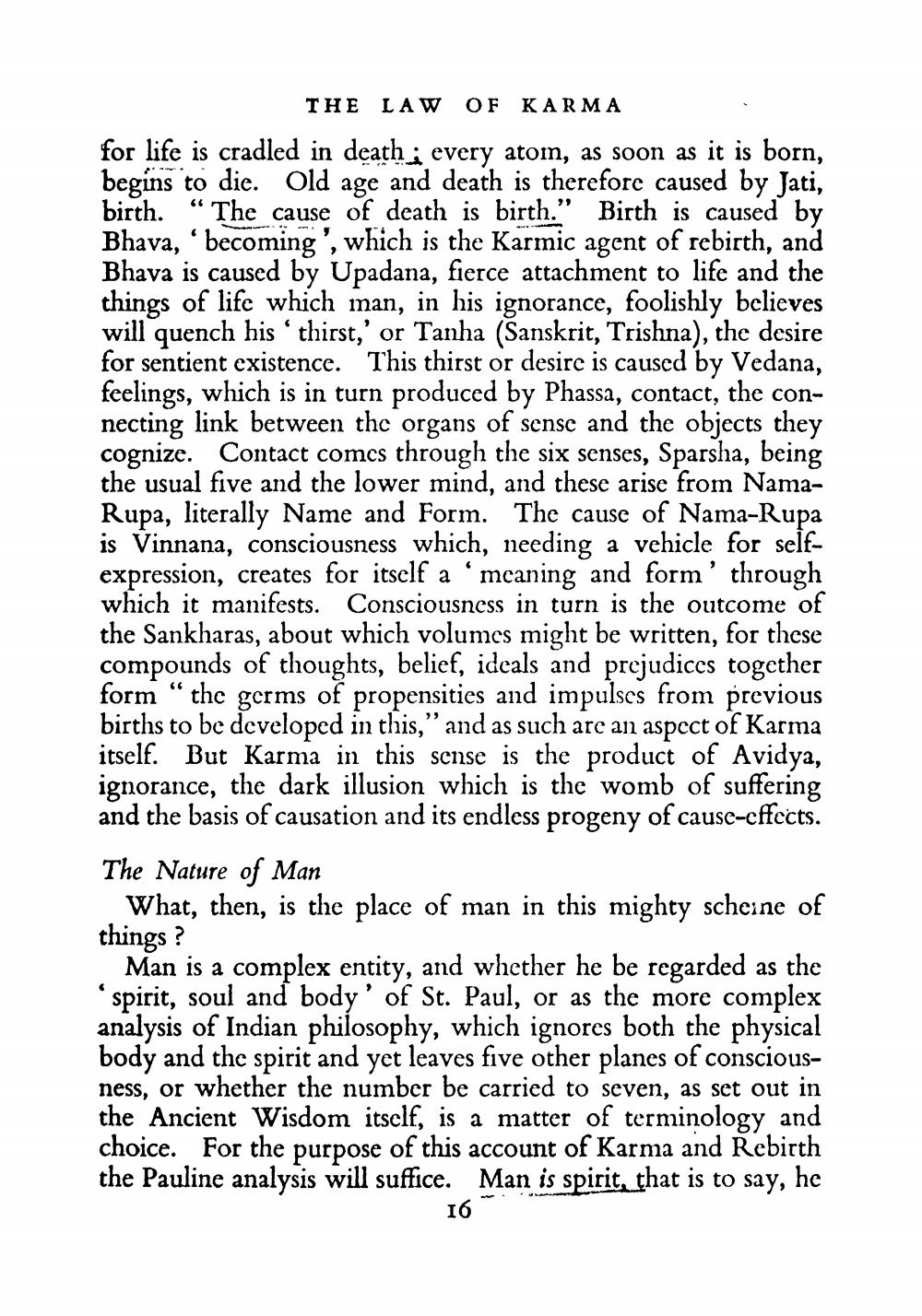________________
THE LAW OF KARMA for life is cradled in death; every atom, as soon as it is born, begins to die. Old age and death is therefore caused by Jati, birth. “The cause of death is birth.” Birth is caused by Bhava, 'becoming', which is the Karmic agent of rebirth, and Bhava is caused by Upadana, fierce attachment to life and the things of life which man, in his ignorance, foolishly believes will quench his thirst,' or Tanha (Sanskrit, Trishna), the desire for sentient existence. This thirst or desire is caused by Vedana, feelings, which is in turn produced by Phassa, contact, the connecting link between the organs of sense and the objects they cognize. Contact comes through the six senses, Sparsha, being the usual five and the lower mind, and these arise from NamaRupa, literally Name and Form. The cause of Nama-Rupa is Vinnana, consciousness which, needing a vehicle for selfexpression, creates for itself a 'meaning and form' through which it manifests. Consciousness in turn is the outcome of the Sankharas, about which volumes might be written, for these compounds of thoughts, belief, ideals and prejudices together form“ the germs of propensities and impulses from previous births to be developed in this,” and as such are an aspect of Karma itself. But Karma in this sense is the product of Avidya, ignorance, the dark illusion which is the womb of suffering and the basis of causation and its endless progeny of cause-cffccts. The Nature of Man
What, then, is the place of man in this mighty scheine of things?
Man is a complex entity, and whether he be regarded as the spirit, soul and body' of St. Paul, or as the more complex analysis of Indian philosophy, which ignores both the physical body and the spirit and yet leaves five other planes of consciousness, or whether the number be carried to seven, as set out in the Ancient Wisdom itself, is a matter of terminology and choice. For the purpose of this account of Karma and Rebirth the Pauline analysis will suffice. Man is spirit, that is to say, he
16




